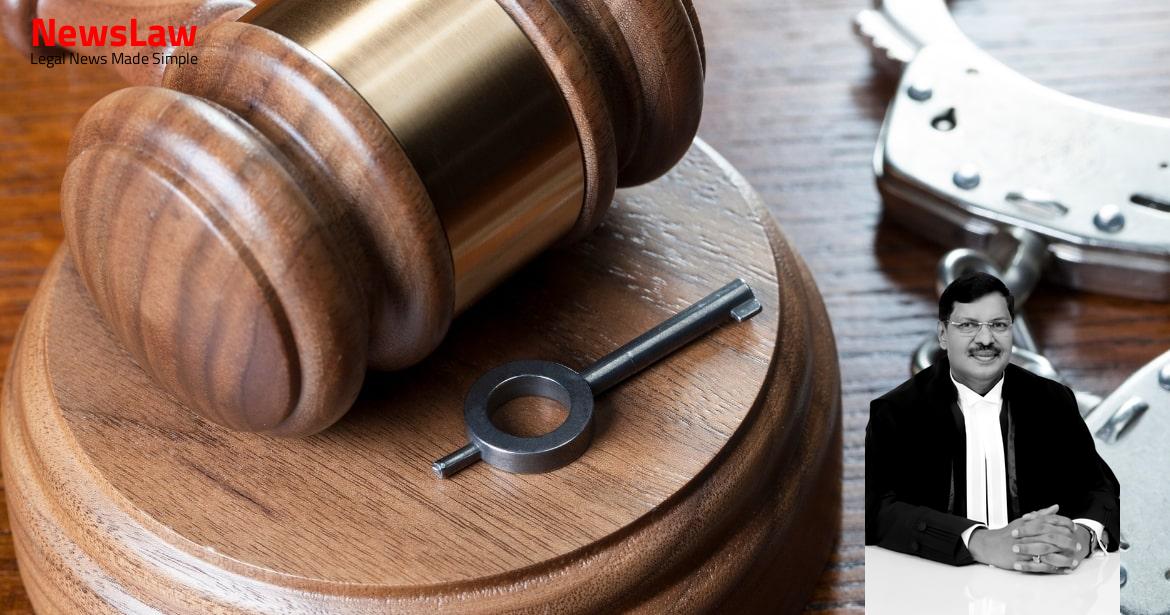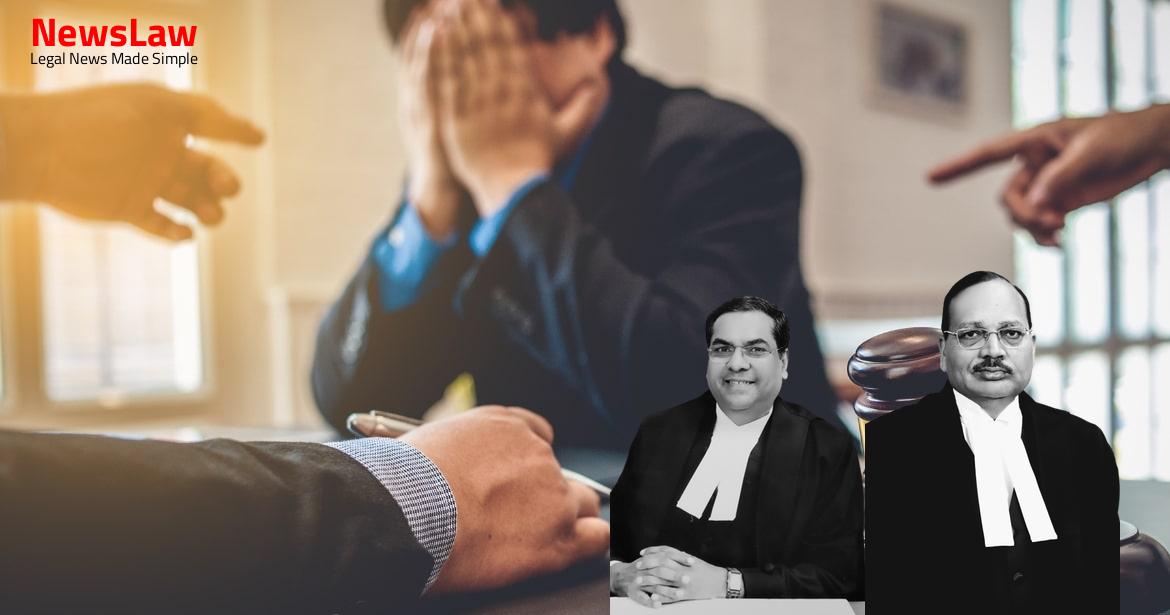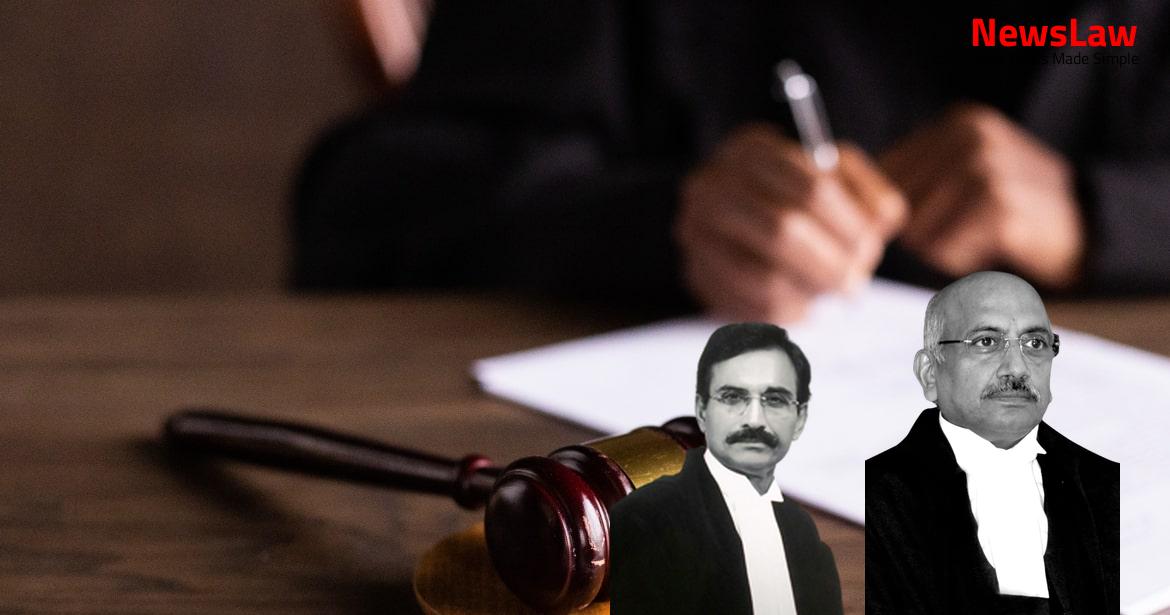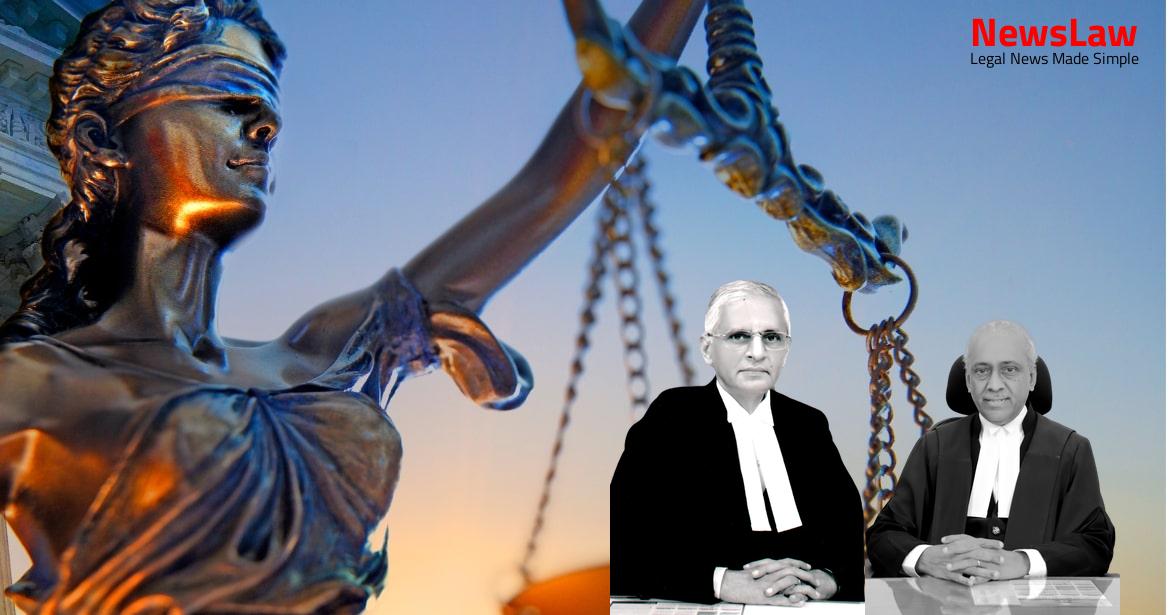In a significant legal ruling by the Supreme Court of India, justice was upheld in the Ajit Murder Case. The case revolves around the conviction of the appellant in the murder of Ajit, with the Trial Court and High Court affirming the verdict. The prosecution, led by witness Janki Bai, encountered challenges as witnesses turned hostile. However, the court found the circumstantial evidence and medical reports compelling, resulting in the dismissal of the appeal. This case sets a precedent for future legal proceedings and underscores the importance of upholding justice.
Facts
- The High Court dismissed the appellant’s appeal.
- The Trial Court convicted the appellant under section 302 of the IPC and sentenced him to life imprisonment along with a fine of Rs. 500.
- The appellant has appealed against the High Court’s decision to dismiss his appeal.
- The Trial Court’s conviction and sentence were confirmed by the High Court.
- Janki Bai, the second wife of the appellant, found Ajit in a dead condition upon removing a blanket.
- Injuries were observed on the neck of the deceased Ajit, with blood oozing from his mouth.
- Janki Bai, aggrieved by the situation, called her father-in-law Lakhmu and lodged an FIR at the Police Station Dantewada.
- The appellant had a quarrel with Janki Bai on 22.7.2000, leading to her taking their two children to her brother-in-law’s house while Ajit remained with the appellant.
- The appellant filed an appeal in the High Court of Chattisgarh at Bilaspur after the completion of the investigation.
- Chargesheet was filed in the Court of Chief Judicial Magistrate, Dantewada, and the case was later committed to the Court of Sessions Judge, Jagdalpur for trial.
- The first wife of the appellant had passed away, and the marriage between the appellant and Janki Bai took place seven years before the incident.
- The Additional Sessions Judge, Jagdalpur conducted the trial after the case was received on transfer.
- The prosecution’s case highlighted the circumstances surrounding the death of Ajit, pointing towards potential foul play.
Also Read: Review Petition filed by Landowners against State of Haryana
Arguments
- The case relies on circumstantial evidence and the prosecution failed to establish the incriminating circumstances and the chain of events leading to the appellant’s guilt.
- The key witness, Janki Bai, turned hostile, weakening the prosecution’s case.
- The conviction by the Trial Court and High Court is questioned as it lacks a strong basis in evidence.
- Credible parts of a hostile witness’s testimony can be considered in court.
- All witnesses related to the accused and deceased turned hostile, including PW-1 Janki Bai.
Also Read: State vs. Selvamani: Upholding Fair Trial Conduct
Analysis
- The prosecution must stand or fall on its own legs and cannot derive strength from the weakness of the defense.
- A false plea or defense may be used to lend assurance to the court when various links in a chain of evidence are already complete.
- The evidence of hostile witnesses can be relied upon by the prosecution to the extent that it supports the prosecution version of the incident.
- In cases based on circumstantial evidence where no eye-witness account is available, if the accused offers no explanation or an untrue explanation to incriminating circumstances, it becomes an additional link in the chain of circumstances.
- PW1 Janki Bai’s evidence establishes a quarrel between the appellant and the deceased’s mother, leaving the deceased alone with the appellant in the room.
- The burden of proof shifts to the appellant under Section 106 of the Indian Evidence Act to explain the events leading to the death of the deceased.
- The appellant’s defense of the deceased dying due to ailment is contradicted by medical evidence from PW-2 Dr. B.K. Tirki.
- The medical evidence indicates a fracture on the deceased’s head and possible death by strangulation, supported by finger marks on the neck.
- The lack of a satisfactory explanation from the appellant, combined with medical evidence, supports the findings of guilt by the Trial Court and the High Court.
- The appeal is dismissed as it lacks merit.
- Section 154 of the Evidence Act allows the court to permit the person calling a witness to ask them questions that could be asked in a cross-examination by the opposing party.
- The evidence of PW-1 Janki Bai is crucial in this case.
- The testimony of Janki Bai is significant for understanding the facts of the case.
Also Read: Land Dispute Legal Battle: Vijay Laxman Bhawe vs. P & S Nirman Pvt. Ltd.
Case Title: SUDRU Vs. THE STATE OF CHHATTISGARH
Case Number: Crl.A. No.-000751-000751 / 2010



